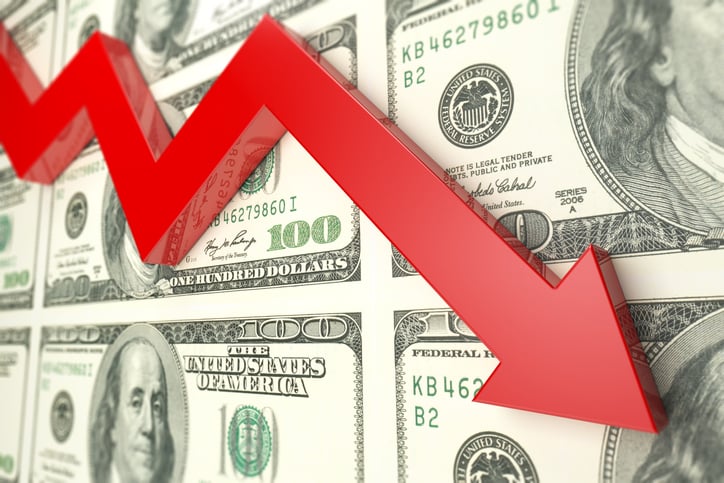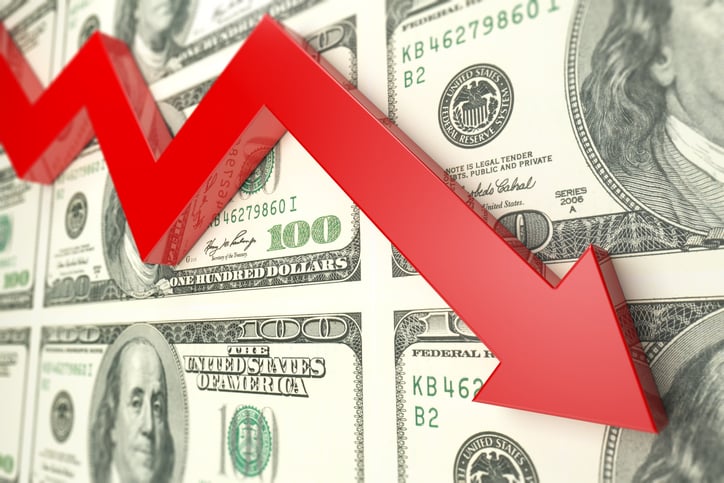Smart investors try to minimize costs wherever they can. Commission-free exchange-traded funds (ETFs) have been a boon for investors, especially those who are just starting out and have only limited amounts of money to invest. By eliminating the standard commission charges that you generally have to pay to buy or sell ETF shares, brokerage companies built up loyalty and gave their customers exposure to some of the best ETFs in the business.
Yet many investors made long-term plans about investing strategy without ever anticipating what brokers could do to make things a lot more difficult for their clients and their ETF trading. A few months ago, as part of what TD Ameritrade (AMTD +0.00%) called a "major expansion and upgrade of its commission-free exchange-traded funds trading program," the broker made huge changes to its existing ETF lineup that left many longtime customers facing the challenge of having to decide between two unappetizing choices.

Image source: Getty Images.
What TD Ameritrade did
Back in October, TD Ameritrade announced changes to its commission-free ETF program, nearly tripling the number of ETFs that customers could trade without commissions to almost 300. That gave TD Ameritrade the largest lineup of commission-free funds.
The broker also noted that the upgraded lineup would include funds from eight different providers. Among them were members of the popular iShares and State Street product lines, as well as PowerShares and ProShares ETFs. Funds from WisdomTree (WETF +1.90%) and JPMorgan Chase's (JPM +0.94%) asset management group were available, as were ETFs from smaller providers AGFiQ QuantShares and First Trust Portfolios.
A TD Ameritrade executive explained the move: "Clients asked us for greater choice and a wider variety of high-quality commission-free ETFs. We're delivering in a big way: we've assembled the largest list of commission-free ETFs in the business while still retaining our open-architecture approach, with no proprietary ETFs." Indeed, TD Ameritrade has been notable in its decision not to offer its own exchange-traded funds, as some of its competitors have.
What the press release didn't highlight, however, was the fact that previous high-profile members of its commission-free lineup were taken off the list. Among them were every Vanguard ETF that TD Ameritrade had previously offered and many of the most popular iShares funds in the market. That took away access to Vanguard's top fund offerings for the U.S., emerging markets, and developed international stock markets, as well as the iShares trackers for the S&P 500 index and a key aggregate bond benchmark. All five of those funds were among the 10 largest ETFs by assets.
Investors were initially given 30 days during which they'd be able to exit their positions in those funds commission-free, after which they'd have to pay commissions. TD Ameritrade later extended that period to 90 days, which expired on Jan. 19.
Stuck without a good exit strategy
Many investors were outraged with the move. Some had chosen TD Ameritrade specifically because of their access to highly liquid low-cost funds like the iShares and Vanguard offerings that had suddenly disappeared. Others were frustrated by the almost complete lack of notice that TD Ameritrade had given them, and even the broker's decision to extend its transition phase didn't fully satisfy everyone.
The key issue for most investors is that you can't just switch from one ETF to another without any consequences. Given the size of the stock market's rally over the past several years, many longtime investors in the iShares and Vanguard funds that were removed have substantial gains in their holdings. If you own them in a taxable account, then selling them off to invest in a new commission-free ETF forces you to realize that gain and pay taxes on it. That's a high price that TD Ameritrade would have known in making its decision. One alternative is moving ETF shares in-kind to another broker, but that typically involves substantial transfer fees, and TD Ameritrade didn't make any explicit universal offer to cover those charges for any customer who wanted to do so. The other is simply to keep investing at TD Ameritrade and pay commissions every time you trade.
A lesson learned
Going forward, some investors will likely look at alternatives to get access to the funds they want. For Vanguard ETF investors, opening a brokerage account at Vanguard could be an option for new investments. But at Vanguard, customers would still have to pay commissions on the non-Vanguard ETFs they want to invest in. Similarly, Fidelity offers some commission-free iShares ETFs, but its lineup doesn't match up perfectly with TD Ameritrade's old list.
The takeaway for ETF investors is that in choosing a broker, you can't necessarily count on a good deal lasting indefinitely into the future. As conditions in the ETF universe shift, brokers will respond in ways that further their business interests and serve the customer base that contributes the most to their success. If you're not part of that valued customer base, you can end up on the outside looking in and feeling like you've been the victim of a bait and switch.








